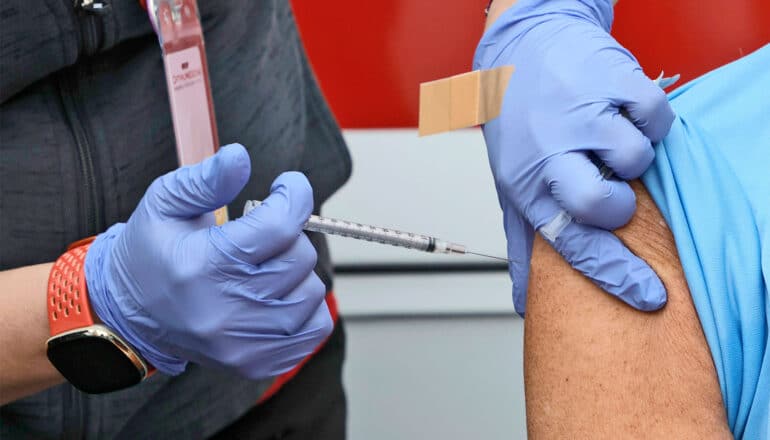Will you be able to get a COVID shot this fall?
- Health and Human Services Secretary Robert F. Kennedy Jr. announced that COVID-19 vaccines will no longer be recommended for healthy children or pregnant women, effective immediately.
- The FDA has also changed its policy framework, stating that boosters will only be available to adults over 65 and younger individuals with one high-risk medical condition, while manufacturers are required to run new clinical trials to prove the benefits of boosters in healthy individuals under 65.
- These changes have significant implications for the fall vaccination campaign, leaving uncertainty over whether healthy people can still get a vaccine even if it’s not recommended for them.
- A recent CDC advisory panel presentation showed that receiving a COVID booster last fall provided added protection, even in individuals who had been infected and previously vaccinated, but researchers seem skeptical that they will be able to override the new policy announcements.
- The changes may affect insurance coverage for COVID-19 vaccines, as the FDA previously stated that the seasonal flu vaccine would be available to people of almost all ages and health risk levels.

Significant changes are potentially ahead for COVID-19 vaccine eligibility.
On May 27, Health and Human Services (HHS) Secretary Robert F. Kennedy, Jr., announced the vaccine will no longer be recommended for healthy children or pregnant women, a move that breaks with previous expert guidance. He publicized the change in a video on X, saying that it’s “common sense and it’s good science.”
This follows a May 20 vaccine policy framework from the Food & Drug Administration (FDA), published in the New England Journal of Medicine, stating that boosters will be available only to adults over 65 and younger individuals with one high-risk medical condition (confusingly, pregnant women were also included in this list). Manufacturers like Moderna and Pfizer will be required to run new clinical trials to prove whether boosters continue to benefit healthy individuals under 65.
These changes have significant implications for the fall vaccination campaign, with uncertainty over whether healthy people can still get a vaccine even if it’s not recommended for them and whether insurers will keep paying for the shots. The FDA previously said it would make the seasonal flu vaccine available to people of almost all ages and health risk levels.
On May 22, a Centers for Disease Control and Prevention (CDC) advisory panel presented new data showing that receiving a COVID booster last fall provided added protection, even in individuals who had been infected and previously vaccinated. The panel meets in June to make recommendations about the fall shots, but researchers seem skeptical that they will overrule these two new policy announcements.
Nahid Bhadelia is a Boston University Chobanian & Avedisian School of Medicine associate professor of infectious diseases. Bhadelia is also the founding director of the BU Center for Emerging Infectious Diseases Policy & Research (CEID), which works to improve international pandemic resilience, and she previously worked on the White House COVID-19 Response Team.
Here, Bhadelia digs into what to make of the recent COVID vaccine guidance changes—and whether you will be eligible for a shot this fall:
The post Will you be able to get a COVID shot this fall? appeared first on Futurity.
